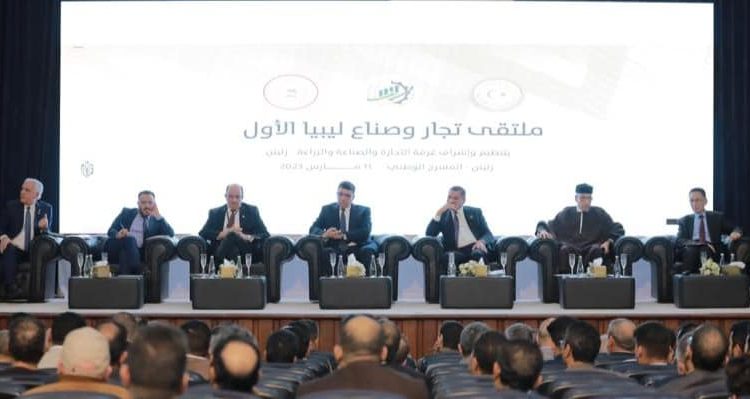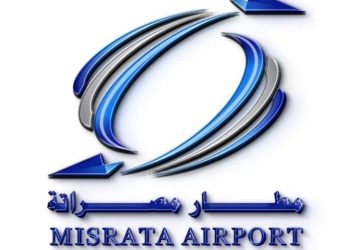Saddek El-Kaber, the Governor of the Tripoli Central Bank of Libya (CBL), said during his speech at the ”First Meeting of Libyan Businessmen and Industrialists” held in Zliten that the Libyan dinar can regain its value in time.
Adjusting the exchange rate
Asked about the exchange rate, initially, the Tripoli CBL Governor said the exchange rate of the Libyan dinar should not be discussed in public meetings. However, he relented and explained his rationale.
There is no source of income for Libya other than oil, and strengthening the Libyan dinar requires multiple sources of income, he explained.
The Central Bank can increase the exchange rate of the dinar tomorrow if the Libyans want, but this price can only last for about 5 months, then the Libyan state will be forced to borrow externally, he warned.
He pointed to Lebanon and Yemen as an example of what might happen to Libya.
However, he said if there is cooperation and the state’s resources are used properly, the exchange rate will return to its previous state and even less.
The bank clearing system with eastern Libya was never closed
It is incorrect to say that the bank clearing system with eastern Libya is closed. He insisted that it has never been closed for a single day, and that the fiction that it is closed was promoted politically to create discord between East and West Libya.
He insisted that the clearing system is fully operational, but that there is a reluctance among banks to accept each other’s cheques because of the accumulated public debt in the eastern region.
In 2021, he added, the Tripoli CBL partially solved the problem of accumulating commercial bank deposits in the two Tripoli and Beida CBLs and provided the banks with 21 billion dinars.
He claimed there is now agreement between the two CBLs and that they are continuing to increase the balances of all commercial banks. El-Kaber claimed that he personally monitors this daily. He said money was pumped into the banks in February, and that this will continue in March and beyond.
He said the movement of clearing instruments is now proceeding smoothly, and the problem will be addressed soon.
The reason for the big problem in the clearing system is the build-up of a large public debt in the eastern region without anything in return for it. This debt is taken from the balances of commercial banks, he added.
CBL’s achievements
Reviewing his achievements as CBL Governor, El-Kaber said over the past decades, the CBL and banking sector has been neglected and marginalized, and has faced many unprecedented challenges since 2014.
The most important of these challenges are the political and institutional division, the arbitrary suspension of oil production and exports, the impact on the relationship with correspondent banks abroad, the parallel spending that affected the financial position of commercial banks, the liquidity crisis, the challenge of imposing international control on public spending, and others.
He said the CBL was able to deal with all these challenges, and succeeded in preserving the continuation of the banking sector and the payment system, and the relationship with the correspondent network abroad and its development.
The CBL also succeeded in maintaining the stability of the exchange rate compared to countries that went through crises like Libya, providing foreign exchange for personal and commercial purposes, and addressing the liquidity crisis, he added.
He said the CBL has now taken advanced steps towards digital transformation, including developing infrastructure, modernizing systems, developing electronic payment systems, and proposing accompanying legislation.
The CBL has also raised the levels of disclosure and transparency by publishing weekly, monthly, and annual reports on its website, El-Kaber said.
Solving private sector problems
The Tripoli CBL Governor reaffirmed his central position in support of the private sector, whether it is commercial, industrial or services.
He said he will continue to cooperate with the Tripoli government and institutions in facing the challenges that prevent the private sector from performing the role that is aspired to.
He called on Libyan businessmen to form a committee among them to list and record the obstacles and challenges facing the private sector, and to present it to the Tripoli government and the CBL to take the necessary measures in this regard.
Money laundering and grey listing
El-Kaber said he hoped that businessmen will cooperate with commercial banks to meet international requirements for combating money laundering, and to keep Libya away from being included in the grey list.
Paypal online payment service
With regards to getting Paypal to operate in Libya, El-Kaber revealed that the CBL had tried repeatedly, including attempts with Tunisia, to motivate the electronic payment company “PayPal” to include Libya and Tunisia within its coverage area, but did not succeed because the company refused to do so – so far.











